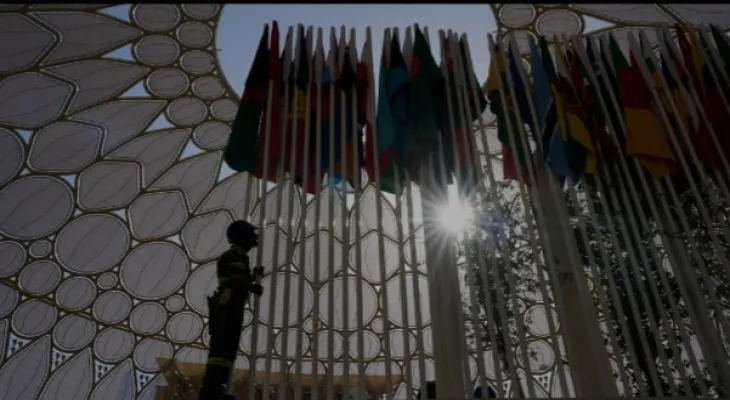Search here
Newspaper
Search here

Arab Canada News
News

Published: December 3, 2023
As world leaders prepare to meet on the first dedicated health day at the United Nations Climate Summit, Canadian doctors plan to use the platform to push for the creation of a new federal office dedicated to addressing the health impacts of climate change.
The head of the Large National Doctors Group said the record-breaking summer and air-polluting wildfires underscored the need for policymakers to organize a Canadian national response.
Dr. Kathleen Ross, president of the Canadian Medical Association, also said the proposed "National Secretariat for Climate and Health" would work across governments to chart a path toward a climate-resilient and low-carbon healthcare system.
Ross said, "We recognize that solving our climate crisis does not uniquely lie within a single government silo."
Sunday will be the first time the United Nations Climate Summit, known this year as COP28, dedicates a day to exploring the links between health and climate change, which the World Health Organization has described as the greatest health threat of the 21st century.
Ross, attending the United Nations Climate Change Conference (COP28), said: "Climate change is actually a multiplier of health threats, and I think that is the message we need to convey."
Doctors and climate scientists also said Canada has already seen horrifying examples of how global warming affects healthcare, with more than 600 people dying from heat under the 2021 heat dome in British Columbia, and unprecedented wildfires this summer choking the air with pollutants, leading to school activity suspensions and increased risks for people with asthma and heart disease. A Yellowknife hospital, along with the rest of the city, was evacuated under threat of encroaching fires.
Dr. Courtney Howard, an emergency physician in Yellowknife and head of the International Physicians for the Environment delegation to COP28, said, "Phasing out fossil fuels is the most important treatment."
Howard added that framing the climate crisis as a health crisis "completely changes the risks" of this issue. She said it makes the effects of climate change tangible, far-reaching, and immediate on human health, from the food we eat to the air we breathe.
"I also have a commitment and responsibility to advocate for public health policy on behalf of the patients I serve, and since I serve a vulnerable patient group and one of the fastest warming places on Earth, climate change is a huge priority for me," Howard continued.
Howard said Canada needs to do more to ensure its healthcare system does not worsen the problem. While the federal government during COP26 in Glasgow signed a two-year pledge to develop a climate-resilient and low-carbon healthcare system, Howard said, "We have barely started implementing it."
She also added: "We don’t even have official statistics on where we are now in terms of greenhouse gas emissions, let alone a plan to get to net zero. Other countries are not just progressing on their plans, but they have started stealing our people because we have no plan and no jobs for them."
The healthcare sector is estimated to be responsible for about four percent of total emissions in Canada. Healthcare leaders are also looking to build more energy-efficient hospitals, introduce virtual care options to reduce transportation emissions and ambulance electricity use. Doctors are also exploring how to reduce single-use plastics and the types of medications that should be prescribed.
For example, some inhalers, which are often in high demand during air-polluting wildfires, use potent greenhouse gases to deliver medication to the lungs, prompting efforts to prescribe lower-carbon alternatives.
Howard said part of the solution also involves providing better education for healthcare workers. She plans to use her time at COP28 to get more doctors, nurses, and organizations to sign a pledge to improve education on climate change across the medical profession.
Doctors also emphasize that climate change exacerbates healthcare inequalities, from the impacts of food security in remote Indigenous communities to the effects of extreme heat on homeless populations.
Comments